By Karna Small Bodman
Throughout history, there have been many brilliant women who made incredible contributions, and yet a number have only been recognized and celebrated when authors (and film producers) write bestselling books and make movies highlighting their achievements. I have been reading a series of books where the writers have done immense research into the lives of several of these women along with gathering information about their families and cultures that defined them at the time. I’d like to share some of their stories with you.

First is a book about Sofonisba Anguissola, a woman of immense talent who is considered the finest woman painter during the Renaissance. With Michelangelo as a mentor along with encouragement from her father, she struggled her entire life to paint portraits of her family and of important officials, although she longed to someday get permission to paint a portrait of the King of Spain.
Her chance came when new Queen Isabella saw examples of her work and named her as one of her Ladies in Waiting. The terrific historical novel, Lady in Ermine by Donna DiGiusep chronicles the artist’s life, hardships, bankruptcy and romance. And by the way, several of Sonofonisba’s paintings are displayed at the National Museum of Women in the Arts here in Washington, DC.
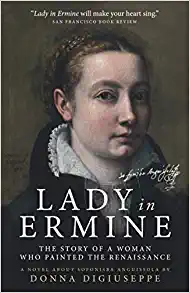
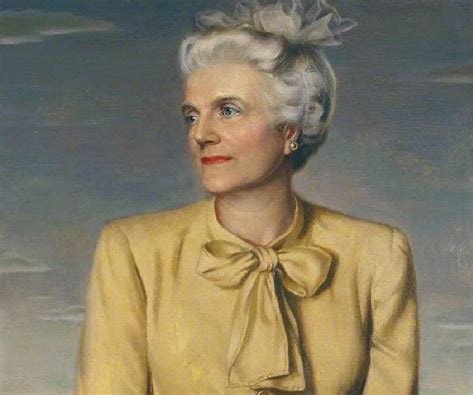
Another bestselling author who has written a whole series of great novels about “unappreciated” women in their time is Marie Benedict. I recently finished reading Lady Clementine about the wife of Winston Churchill. Yes, there have been several books written about this talented and influential lady, but this is my favorite. It begins in 1909 when Clementine steps off a train with her new husband, and an angry woman moves through the crowd and attempts to attack Winston. Clementine grabs the intruder by the jacket and manages to fend her off before Winston can be shoved onto the tracks. This is not the first time she has “saved” her husband. The story continues through WWI where her bravery and influence on Winston propels him forward toward an illustrious career. The reader gains quite an insight into the dangers and difficulties of life during the war and how Clementine dealt with her own insecurities and personal secrets, including a scandalous childhood. In spite of these things, Clementine turns out to be an indispensable advisor to her famous husband.
The next book by Marie Benedict and her writing partner for this one, Victoria Christopher Murray, is another one I read recently, The Personal Librarian. A New York Times Bestseller and Good Morning America Book Club Pick, this story traces the remarkable life and accomplishments of J.P. Morgan’s personal librarian Belle da Costa Greene – who traveled the world acquiring books, manuscripts and artifacts for the Pierpont Morgan Library. A unique aspect of her life was how she was forced to hide her true identity as a Black American who “passed for white” – and how she managed to be accepted into high society art circles in New York and abroad during the early 1900s.
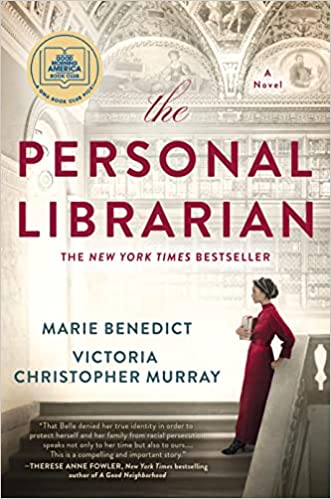
Belle was hired in her twenties and rose to her prominent position when Morgan recognized her intellect, well read background and shrewd negotiating ability. He wanted her to help create a world-class collection. She not only had to compete with jealous Morgan family members, but endeavor to protect her own family and their legacy. Her father was the first Black American to graduate from Harvard. Yes, this is a tale of deceit, but also one of allegiance and survival – a fascinating tale indeed.
Finally, I can highly recommend another Benedict historical tome, The Other Einstein about Albert’s first wife, Mitza Maric. Just before the turn of the century, they met at an elite Zurich university where Mitza was the only woman in a physics class. She and Albert studied together, exchanged ideas and theories and fell in love. Their relationship becomes a partnership, but turns out to be one-sided when later, Albert submits a theory she had developed (and he simply “tweaked”) leaving her name off and taking all the credit. He did this several other times.
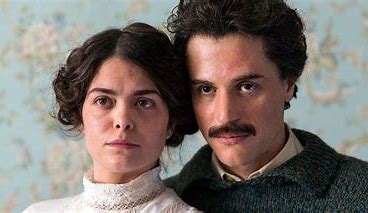
This was not Albert Einstein’s only “betrayal.” Being a student with little money and having parents who would “disapprove” of a Serbian woman not as “high born” as the Einstein family, he nevertheless talks her into sharing a clandestine weekend where she becomes pregnant. Albert ignores the child for three years, and they are married only after the little girl dies when disease spreads throughout the area. Later, they are divorced, and Albert goes on to become the renowned scientist we all have heard about. And yet, we should know how he got his start by collaborating with an incredibly talented scientist in her own right, one who truly paved the way for many more to come.
Can you recommend any books you’ve read about brilliant women who were not recognized or “honored” for great accomplishments during their lifetimes?
Please share them with us and our readers. And thanks for joining us here on Rogue Women Writers.
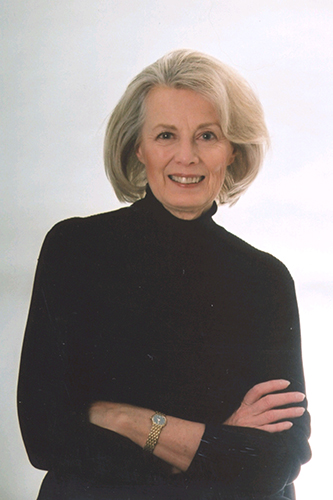
Karna Small Bodman is the author of five international thrillers that have hit #1 in Thrillers on Amazon and won several awards, as well as a series of children’s picture books. Her books were inspired by the six years she served in the Reagan White House, first as Deputy Press Secretary, later as Senior Director of the National Security Council where she was the highest-ranking woman on the White House staff. On book tours she has given over 400 speeches and interviews nation-wide. When not writing or traveling, she is serving on several boards and swimming laps at their homes in Naples, FL, Washington, DC and Rancho Santa Fe, CA.
















































Wow—amazing indeed, and how frustrating it must have been in their time to be disregarded from the credit they deserved!
Reminds me of the book First to the Front: The untold story of Dickey Chapelle, trailblazing female war correspondent by Lorissa Rinehart.
Thanks, Lisa, for that recommendation of the story about Dickey Chapelle – I’ll have to heck that out!
Nanci Griffith wrote a great song about Dickey Chapelle called Pearl’s Eye View. It’s on her Clock Without Hands album.
These book recs are fire! I’m checking them out. Good summer reading. Thanks, Karna!
Lisa – of course I mean I’ll have to “check” that out – I just type too fast.
What an interesting post, Karna! I have on my pile to read, “The Switchboard Soldiers” by Jennifer Chiaverini. During WWI General Pershing recruited and swore into the Armed Services 223 American telephone operators—all women—to serve on the front lines in France. Pershing said male switchboard operators were too slow, taking one minute to connect a call. The women could do it in ten seconds. They were called the “Hello Girls.”
After the war, the Army refused to acknowledge them as veterans and wouldn’t grant them veteran benefits. It took sixty years to correct that. Unfortunately, most of the women had already passed away.
Aside from The Other Einstein, I hadn’t known any of these stories! Thanks, Karna. I have an author friend whose just finished ms features a little known woman of Salem in 1674. Would definitely be at home in this great post.